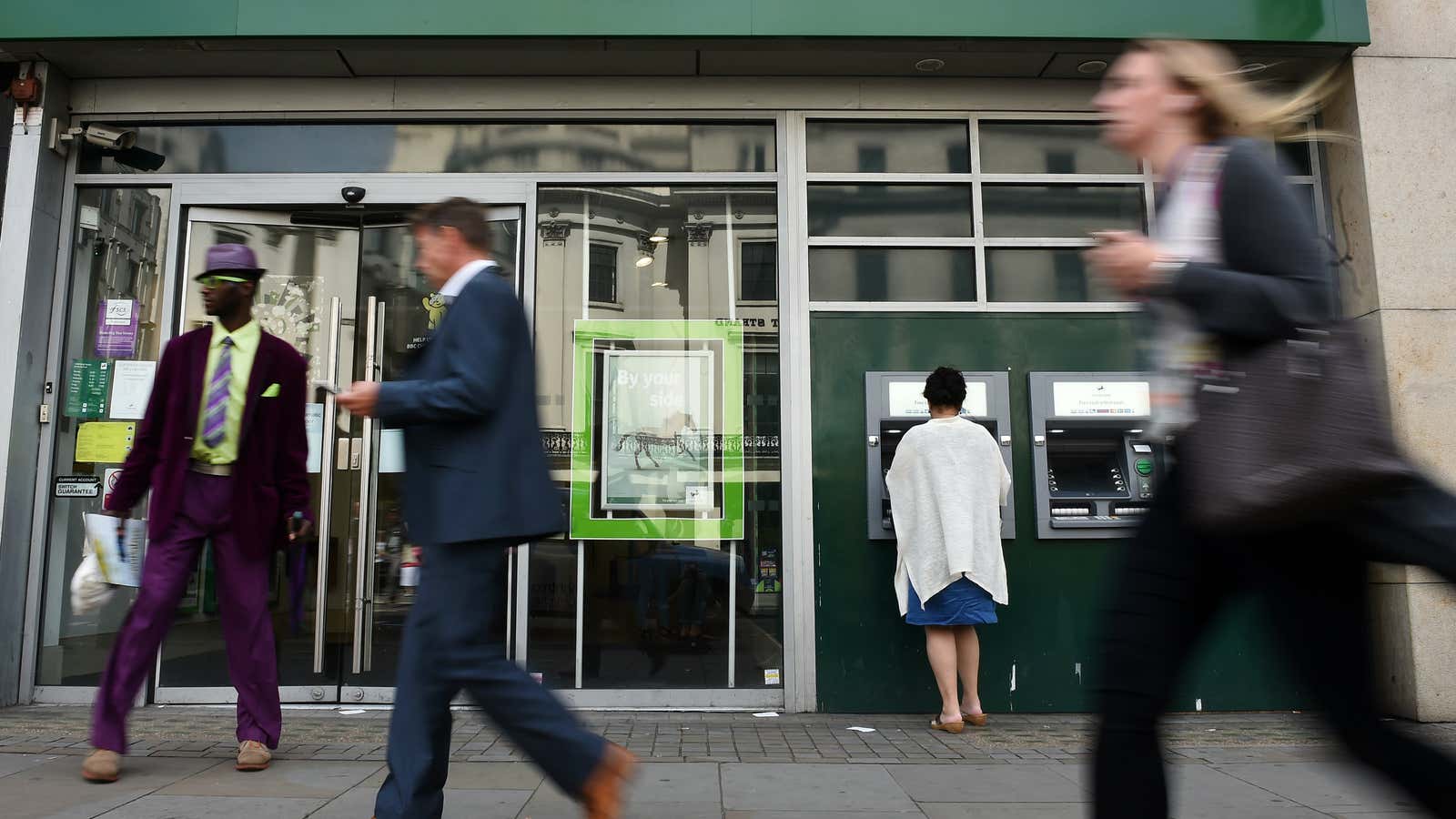European banks are cutting headcount across the continent, as branches close and customers handle more of their financial needs online. This presents an opportunity for leaner digital-focused startups, but also raises concerns for people with less access to, or familiarity with, internet banking.
Technology is transforming the financial industry. More than half of EU residents used internet banking in 2017, compared with 29% in 2008, according to the European Banking Federation.
This has had a substantial impact on the livelihoods of people who work in the banking industry. The number of people in the EU employed by banks has fallen to the lowest level since at least 1997, the year the European Central Bank’s data begins. Bank employment fell by 70,000 last year, to about 2.7 million.
Bank branches are also closing. More than 5,800 were shut down last year, bringing the total number still open to around 183,000. More than 18,000 branches have closed in Spain since 2007, the most in the EU, following by 8,769 for Germany, and 5,800 for Italy.
Germany’s financial sector still stands out as the most bloated in the EU, however, with more than 600,000 workers (nearly double that of the UK). However the complex, three-tier system of private banks, public savings banks, and credit unions is showing signs of downsizing more quickly than in other EU countries.
The shift to electronic payments and internet banking is an opportunity for financial startups that don’t have the money or interest required to run storefront locations. However, a concern for regulators is how to maintain financial services for people who still rely on cash or have limited access to the internet. Financial industry jobs are also an important driver for the economy; if employment in the sector continues to decline, this too will be a growing concern for policymakers as well as regular people, whatever their feelings towards bankers.
